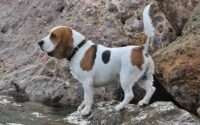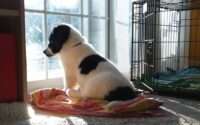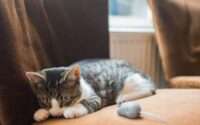How Big Do Maine Coon Cats Get? Your Comprehensive Size Guide!
Welcome to our exploration into the world of Maine Coon cats and their impressive size! Maine Coons are renowned for their gentle nature, striking appearance, and, of course, their remarkable size. In this comprehensive guide, we’ll delve into the fascinating history of Maine Coon cats and uncover the secrets behind their impressive stature.
The Fascinating History of Maine Coon Cats
Maine Coon cats boast a rich history steeped in legend and lore. Originating in the rugged forests of Maine, these majestic felines were revered for their hunting prowess and friendly demeanor. As the official state cat of Maine, Maine Coons hold a special place in the hearts of cat enthusiasts everywhere.
According to legend, Maine Coon cats are descendants of seafaring cats brought to the New World by sailors. Over time, these cats adapted to the harsh climate of Maine, developing their distinctive features, including their large size and tufted ears.
Despite their impressive size, Maine Coons are known for their gentle and affectionate nature, earning them the nickname “gentle giants” of the cat world. Their sociable disposition and striking appearance have made them one of the most popular cat breeds in the United States.
Anatomy of a Maine Coon: Understanding Their Size Potential
Maine Coon cats possess a unique anatomy that contributes to their impressive size potential. From their large, muscular bodies to their tufted ears and bushy tails, every aspect of a Maine Coon’s physique is designed for both beauty and functionality.
One of the most striking features of Maine Coon cats is their size. These felines are known for their substantial build, with adult males weighing between 13 to 18 pounds on average, and females typically ranging from 8 to 12 pounds. However, it’s not uncommon for some Maine Coons to exceed these weight ranges, with some individuals tipping the scales at over 20 pounds or more.
Their large, muscular bodies are supported by sturdy bones and thick, dense fur that provides insulation against the cold. Additionally, Maine Coons have broad chests, strong legs, and tufted paws that enable them to navigate rugged terrain with ease.
Beyond their physical appearance, Maine Coon cats are known for their friendly and sociable nature. Despite their imposing size, these gentle giants are affectionate and outgoing, making them beloved companions for families and individuals alike.
How Big Do Maine Coon Cats Really Get?
One of the most common questions among prospective Maine Coon owners is, “How big do they really get?” The answer is, it varies. Maine Coon cats can reach impressive sizes, with some individuals growing larger than others due to genetic factors and environmental influences.
On average, male Maine Coons tend to be larger than females, with some males weighing up to 25 pounds or more. However, size can also depend on factors such as lineage, diet, and overall health.
While Maine Coon cats are known for their size, it’s essential to remember that every cat is unique. Some Maine Coons may reach their full size by the age of 3 or 4, while others may continue to grow and develop well into adulthood.
In the next sections, we’ll explore the factors that influence Maine Coon cat size and offer insights into managing their growth and development. Stay tuned as we unravel the mysteries of these magnificent felines!
Factors Influencing Maine Coon Cat Size
Understanding the factors that influence Maine Coon cat size is key to unraveling the mysteries behind these magnificent felines’ impressive stature. From genetics to environmental factors, several elements play a role in determining how big a Maine Coon cat can grow.
- Genetic Predispositions: Maine Coon cats inherit their size traits from their parents. If both parents are large, there’s a higher likelihood that their offspring will also be substantial in size. Breeders often select for desirable size characteristics when breeding Maine Coon cats, which can further influence the size of future generations.
- Nutritional Factors: Diet plays a crucial role in determining a Maine Coon cat’s size and overall health. A balanced diet rich in protein and essential nutrients is essential for promoting healthy growth and development. Maine Coon kittens require a diet tailored to their specific needs to support their rapid growth during the early stages of life.
- Environmental Influences: The environment in which a Maine Coon cat grows up can also impact its size. Factors such as access to outdoor space, opportunities for exercise, and social interactions can all influence a cat’s growth and development. Providing a stimulating and enriching environment for Maine Coon kittens can help support their physical and mental well-being as they grow.
By considering these factors, Maine Coon cat owners can better understand and appreciate the unique characteristics that contribute to their feline companion’s size and stature.
Comparing Maine Coon Size with Other Cat Breeds
Maine Coon cats are renowned for their impressive size, but how do they measure up against other popular cat breeds? Let’s take a closer look at the size differences between Maine Coons and some other well-known feline companions.
Cat Breed Average Weight (Male) Average Weight (Female) Average Length Average Height Maine Coon 13-18 pounds 8-12 pounds 19-40 inches 10-16 inches Ragdoll 12-20 pounds 8-15 pounds 17-21 inches 9-11 inches Persian 7-12 pounds 7-12 pounds 14-18 inches 10-11 inches Siamese 8-12 pounds 6-10 pounds 20-24 inches 8-10 inches Bengal 10-15 pounds 7-10 pounds 14-20 inches 10-12 inches Siberian 12-18 pounds 8-12 pounds 17-26 inches 9-11 inches Norwegian Forest 13-22 pounds 9-16 pounds 12-18 inches 9-12 inches British Shorthair 9-18 pounds 7-12 pounds 12-20 inches 10-12 inches Scottish Fold 9-13 pounds 6-9 pounds 11-15 inches 8-10 inches Bengal 8-15 pounds 6-12 pounds 17-22 inches 9-11 inches
As seen in the table above, Maine Coon cats tend to be larger and more robust compared to other cat breeds. While there may be variations within each breed, Maine Coons typically outweigh and outsize their counterparts. Their substantial build and majestic appearance truly set them apart as one of the largest domestic cat breeds.
This comparison highlights the unique size characteristics of Maine Coon cats and provides valuable insights into how they stack up against other popular feline companions.
Recognizing the Signs of a Growing Maine Coon Kitten
As Maine Coon kittens grow and develop, there are several signs that owners can look out for to track their progress and ensure they’re on the right track for healthy growth.
- Healthy Appetite: A growing Maine Coon kitten will have a healthy appetite, eagerly consuming food to fuel their rapid growth and development. Providing a balanced diet tailored to their nutritional needs is essential for supporting their growth.
- Increased Activity Levels: Growing Maine Coon kittens are typically active and playful, engaging in frequent bouts of play and exploration. Regular playtime and exercise are essential for supporting their physical development and helping them build strong muscles and bones.
- Gradual Weight Gain: As Maine Coon kittens grow, they will gradually gain weight over time. Monitoring their weight regularly and consulting with a veterinarian can help ensure they’re growing at a healthy rate and are not under or overweight.
- Developmental Milestones: Maine Coon kittens reach various developmental milestones as they grow, such as opening their eyes, learning to walk, and transitioning to solid food. Tracking these milestones can provide insights into their growth and development progress.
By recognizing these signs and milestones, Maine Coon cat owners can ensure their kittens are growing and developing as expected and provide them with the support and care they need to thrive.
Managing the Size of Maine Coon Cats
While Maine Coon cats are known for their impressive size, it’s essential for owners to take proactive steps to manage their feline companion’s growth and ensure they remain healthy and happy throughout their lives.
- Balanced Diet: Providing a balanced diet is crucial for managing the size of Maine Coon cats. A diet rich in high-quality protein and essential nutrients supports healthy growth and development while preventing excessive weight gain. Consult with a veterinarian to determine the best diet for your Maine Coon based on their age, weight, and activity level.
- Regular Exercise: Maine Coon cats are naturally active and playful animals, so regular exercise is essential for managing their size and keeping them in good shape. Engage your Maine Coon in interactive play sessions and provide opportunities for them to explore and exercise both indoors and outdoors under supervision.
- Weight Monitoring: Keep a close eye on your Maine Coon cat’s weight and body condition to ensure they’re maintaining a healthy size. Regular weigh-ins and body condition assessments can help you track their progress and make adjustments to their diet and exercise routine as needed.
- Veterinary Care: Regular veterinary check-ups are essential for monitoring your Maine Coon cat’s overall health and well-being. Your veterinarian can assess their growth and development, provide guidance on managing their size, and address any health concerns that may arise.
By taking a proactive approach to managing the size of your Maine Coon cat, you can help ensure they live a long, healthy, and happy life.
World Records and Notable Maine Coons
Maine Coon cats are known for their impressive size, and some have even gained fame for breaking records as the largest and longest cats in the world. Let’s explore some notable Maine Coons who have left their mark on the feline world:
- Stewie: Stewie, a Maine Coon from Nevada, USA, gained widespread attention for holding the Guinness World Record for the longest domestic cat ever recorded. Stewie measured an astonishing 123 cm (48.5 inches) from the tip of his nose to the tip of his tail and stood out as a true gentle giant among his peers. Stewie was awarded the record by Guinness World Records in 2010. Sadly, Stewie lost his battle with cancer and passed away in 2013 at the age of 8.
- Barivel: Another Maine Coon cat named Barivel, hailing from Italy, also made headlines for his remarkable size. Barivel earned the title of the longest living domestic cat by Guinness World Records, measuring an impressive 120 cm (47.2 inches) long as verified on 22 May 2018. His extraordinary length and gentle demeanor endeared him to cat lovers worldwide.
- Ludo: Ludo, a Maine Coon from the United Kingdom, previously held the record for the longest domestic cat living before Barivel, measuring 118.33 cm (46.59 inches) at the time of verification on 6 October 2015.
These remarkable Maine Coons exemplify the breed’s potential for impressive size and stature, captivating audiences with their extraordinary dimensions. While not every Maine Coon will reach such colossal proportions, these notable cats serve as a testament to the breed’s unique charm and appeal.
Conclusion
In conclusion, exploring the world of Maine Coon cats and their impressive size has been a fascinating journey. From unraveling the mysteries behind their substantial stature to understanding the factors that influence their growth and development, we’ve gained valuable insights into these magnificent felines.
Maine Coon cats, with their gentle demeanor and striking appearance, hold a special place in the hearts of cat enthusiasts everywhere. While their size may be one of their most notable features, it’s essential to remember that every Maine Coon cat is unique, and their size is just one aspect of what makes them so special.
As we conclude our exploration, let us continue to celebrate the beauty and diversity of Maine Coon cats and cherish the joy and companionship they bring into our lives. Whether large or small, Maine Coon cats have a way of capturing our hearts and leaving an indelible mark on our souls.
Frequently Asked Questions
How big do Maine Coon cats get compared to other cat breeds?
Maine Coon cats are among the largest domestic cat breeds, with males typically weighing between 13 to 18 pounds and females ranging from 8 to 12 pounds. They often outweigh and outsize many other popular cat breeds.
At what age do Maine Coon cats reach their full size?
Maine Coon cats are considered fully grown at around 3 to 4 years of age. However, individual growth rates may vary, and some Maine Coons may continue to fill out and develop well into adulthood.
Are Maine Coon cats suitable for apartment living given their size?
Despite their large size, Maine Coon cats can adapt well to apartment living as long as they have enough space to move around and opportunities for exercise. Providing vertical space and interactive toys can help keep them mentally and physically stimulated.
Do Maine Coon cats require special grooming due to their size?
Maine Coon cats have thick, dense fur that requires regular grooming to prevent matting and tangles. Weekly brushing sessions can help keep their coat healthy and free from loose hair, reducing shedding around the home.
Are there any health concerns associated with the size of Maine Coon cats?
While Maine Coon cats are generally healthy and robust, their size may predispose them to certain health issues such as hip dysplasia and heart disease. Regular veterinary check-ups and a balanced diet can help prevent and manage these concerns.
Can I predict how big my Maine Coon kitten will grow based on its parents’ size?
Maine Coon kittens often inherit their size traits from their parents, so knowing the size of the kitten’s parents can provide some indication of its potential size. However, individual genetics and environmental factors also play a significant role in determining a cat’s final size.
Do male Maine Coon cats grow larger than females?
Yes, male Maine Coon cats tend to be larger and more substantial in size compared to females. This difference in size is a natural characteristic of the breed and is influenced by hormonal factors.
Are Maine Coon cats good with children and other pets despite their size?
Maine Coon cats are known for their gentle and sociable nature, making them excellent companions for children and other pets. Their calm demeanor and affectionate personality make them well-suited for multi-pet households.
How can I ensure my Maine Coon cat maintains a healthy weight given its size?
Providing a balanced diet, regular exercise, and monitoring your Maine Coon cat’s weight are essential for maintaining a healthy weight. Avoid overfeeding and encourage physical activity to prevent obesity and associated health issues.
Are there any specific dietary requirements for Maine Coon cats to support their growth?
Maine Coon kittens require a diet rich in protein and essential nutrients to support their rapid growth and development. As they mature, a balanced diet tailored to their size and activity level is essential for maintaining optimal health.






